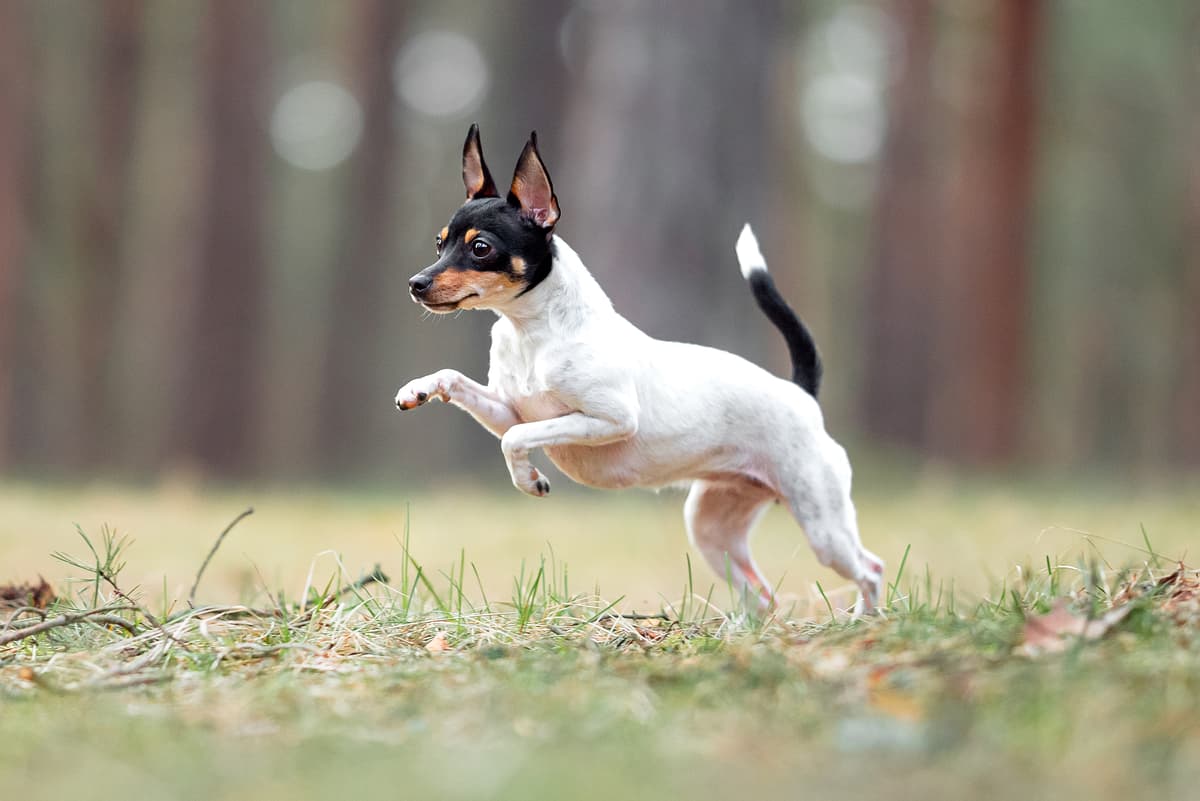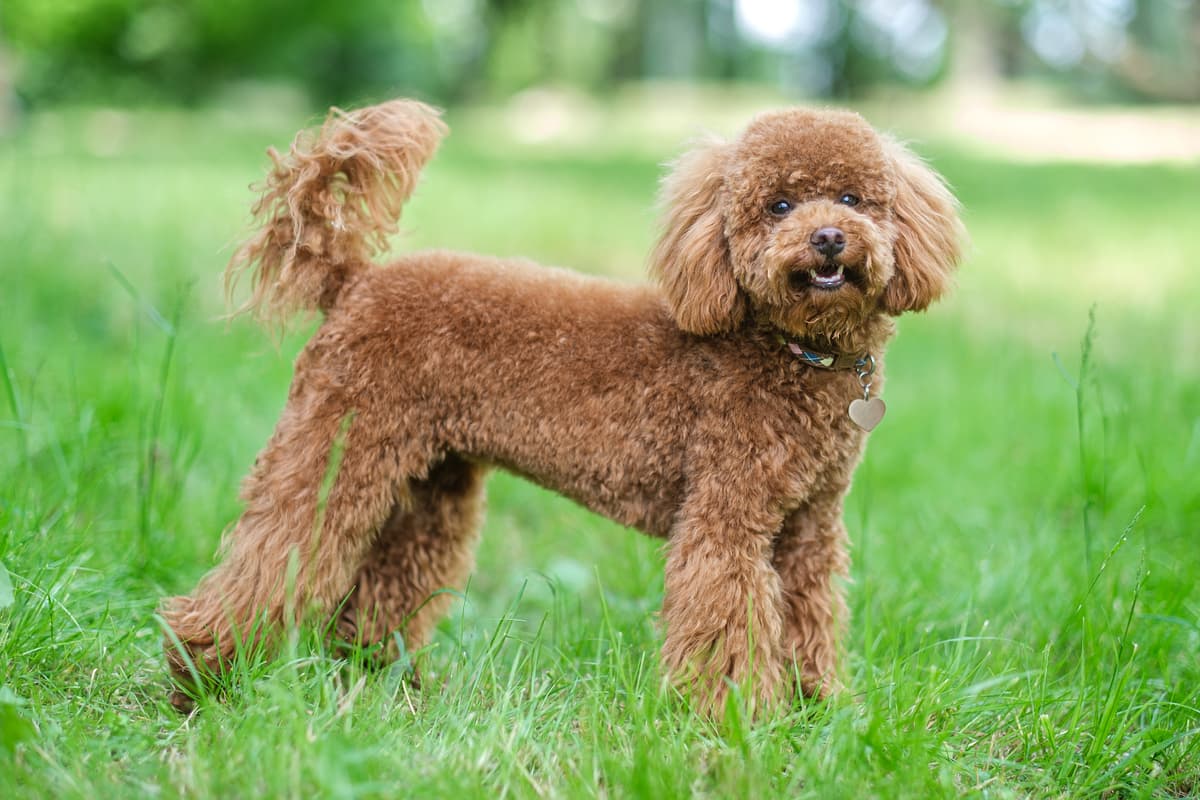American Toy Terrier vs Poodle
Discover the differences between American Toy Terrier and Poodle to make the best choice for your situation.
Try different breeds

American Toy Terrier
Lively, alert, and affectionate, this tiny companion thrives on attention and play. Compact yet confident, the American Toy Terrier is adaptable and forms strong family bonds.

Poodle
Elegant, intelligent, and highly trainable, this breed stands out for its lively spirit and loyal companionship. Their hypoallergenic coat and playful personality make them ideal family pets.
Quick comparison
Small
2.5–3.6 kg
Short, smooth
12–15 years
2.3–3.2 kg
High energy
Medium
20–32 kg
Curly, dense
12–15 years
18–27 kg
High energy
Personality & behavior
Compare the personality traits and behavioral characteristics of both breeds.
American Toy Terrier
Enjoys people, bonds closely with family members
Learns commands and routines quite quickly
Very active, loves frequent movement and activity
Enjoys games and interactive activities daily
Adjusts well to new homes and settings
Poodle
Warm and sociable with family and guests
Highly intelligent and quick to learn commands
Needs regular activity and enjoys exercise
Loves games and interactive playtime
Easily adjusts to new environments and routines
Care needs
Exercise, grooming, and daily care requirements
American Toy Terrier
Patellar luxation, dental issues
Poodle
Hip dysplasia, Addison’s disease
Suitability
How well each breed fits different living situations and families
American Toy Terrier
Good option
Easy to train with clear guidance, but can be sensitive to mishandling
Excellent fit
Small size and moderate exercise needs suit compact living spaces well
Moderately suitable
Enjoys activity but may tire quickly during intense exercise sessions
Not ideal
Delicate build and sensitivity make them less suited for rough handling by toddlers
Possible match
Can adapt to other pets if introduced slowly and supervised closely
Prone to stress
Dislikes being left alone for long periods and may develop separation anxiety
Poodle
Great choice
Intelligent and eager to please, Poodles are easy for beginners to train and manage.
Highly suitable
Poodles adapt well to apartment life if given daily exercise and mental stimulation.
Perfect fit
Their energy and love for activity make them great companions for active households.
Very friendly
Poodles are gentle and patient with children when socialized from a young age.
Gets along well
Poodles usually coexist peacefully with other pets, especially if socialized early.
Prone to anxiety
Poodles can develop separation anxiety if left alone for long periods regularly.
Breed strengths
What each breed excels at and their best qualities
American Toy Terrier
- Alert watchdog with keen senses
- Energetic and playful companion
- Low grooming requirements due to short coat
- Strong loyalty to primary handler
- Quick learner with consistent training
Poodle
- Highly intelligent and easy to train
- Hypoallergenic coat reduces shedding
- Strong bond with family members
- Adaptable to various living environments
- Excellent performance in canine sports
Challenges & considerations
Potential challenges and considerations for each breed
American Toy Terrier
- Prone to separation anxiety when left alone
- Fragile bones require gentle handling
- Can be wary of strangers and other dogs
- High prey drive may challenge small pets
- Sensitive to cold due to small size
Poodle
- Requires regular professional grooming
- Prone to separation anxiety if left alone
- Needs daily mental and physical stimulation
- Can be reserved with unfamiliar people
- Susceptible to certain genetic health issues
Ready to choose your perfect breed?
Learn more about each breed or compare other breeds to find the perfect match for your lifestyle.
Discover more helpful tools
Make use of our other free tools to get the most out of your pet experience
